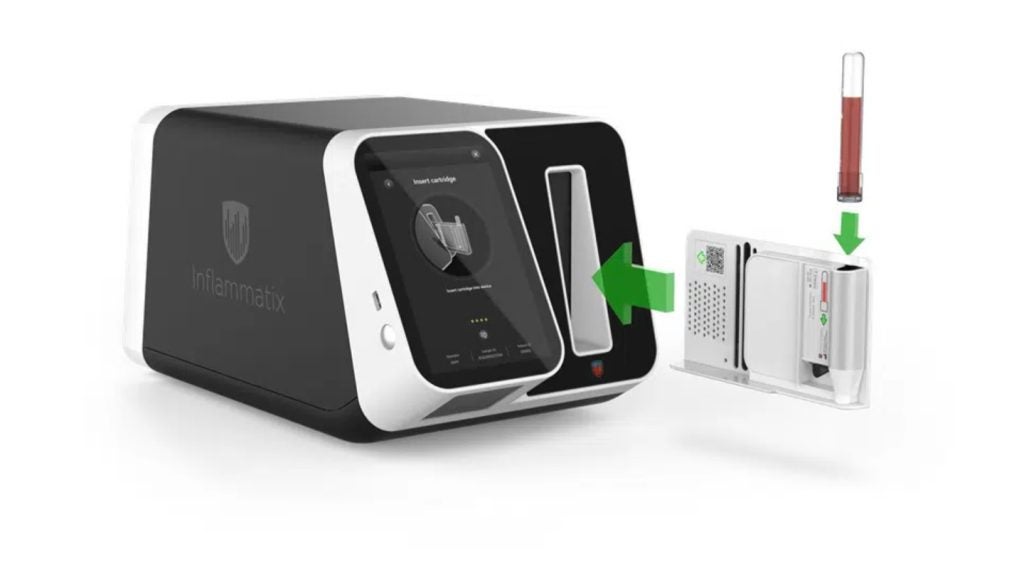Inflammatix has received breakthrough device designation from the US Food and Drug Administration (FDA) for its TriVerity acute infection and sepsis test system.
Featuring the Myrna instrument and the TriVerity test, the new system is presently under development for use in emergency departments to treat adult patients with suspected acute infection or suspected sepsis.
The TriVerity test is intended to offer three independent readouts, indicating the possibility of a bacterial infection, a viral infection, and the risk for severe illness.
This test includes a panel of 29 messenger RNAs (mRNAs) for reading the immune response of the body.
Its three readouts enable the diagnosis and prognosis of patients in emergency departments, claimed the company.
Furthermore, the Myrna instrument facilitates the sample-to-answer quantitation of up to 64 mRNAs from whole blood or other sample types in around 30 minutes.
The initial Myrna instrument version requires standard lab procedures, but the company plans to create a Clinical Laboratory Improvement Amendments-waivable version for enabling point-of-care deployments.
Inflammatix CEO and co-founder Dr Timothy Sweeney said: “We are pleased that the FDA has granted its breakthrough device designation to TriVerity, as it reflects that this novel test system has the potential to help physicians improve on the current standard of care.
“By reaching this important regulatory milestone, we hope to place TriVerity on an accelerated pathway to FDA clearance, which would allow us to fill an unmet need for rapid, accurate tests for the diagnosis and prognosis of patients with suspected sepsis.”
The receipt of breakthrough device designation from the FDA comes after the company earlier this month announced the conclusion of the technical development of the TriVerity system and resumption of clinical studies, including the SEPSIS-SHIELD study needed for the FDA's 510(k) clearance.
It has already enrolled 955 patients out of the estimated 1,500 needed for the multicentre study. The company expects to complete the study and submit it to the FDA next year.









